Cynetra Freeman returned to her Tampa Fla. home on Jan. 4, 2010, after completing her day’s classes at the University of South Florida. Then-25-year-old college junior had been studying criminology to fulfill her dream of one day becoming a lawyer. Shortly after she entered her house that cool Monday afternoon, however, the Tampa Police Department SWAT team surrounded her house, burst her door open and handcuffed her.
“The day I was arrested—oh, it was frightening—because of the way that I got arrested,” Freeman told the Mississippi Free Press on Feb. 24, 2022, at the Mississippi State Capitol complex. “You would’ve thought I was like some real hard criminal because of the way they surrounded my house.”
“It was a group of about 20 officers from the SWAT team; they all had their guns drawn,” she recounted. “I don’t know what was said, but they treated me like I was a real hard case, like a murderer or something.”
She subsequently spent 12 months in jail for heroin trafficking, a crime about which she asserted she knew nothing. A man she had been dating at the time, in a bid to cut a deal with law enforcement, falsely gave up her name as an accomplice when the police arrested him, Freeman said. She contested the charges, and a judge released her for time served after one year out of a possible three years.
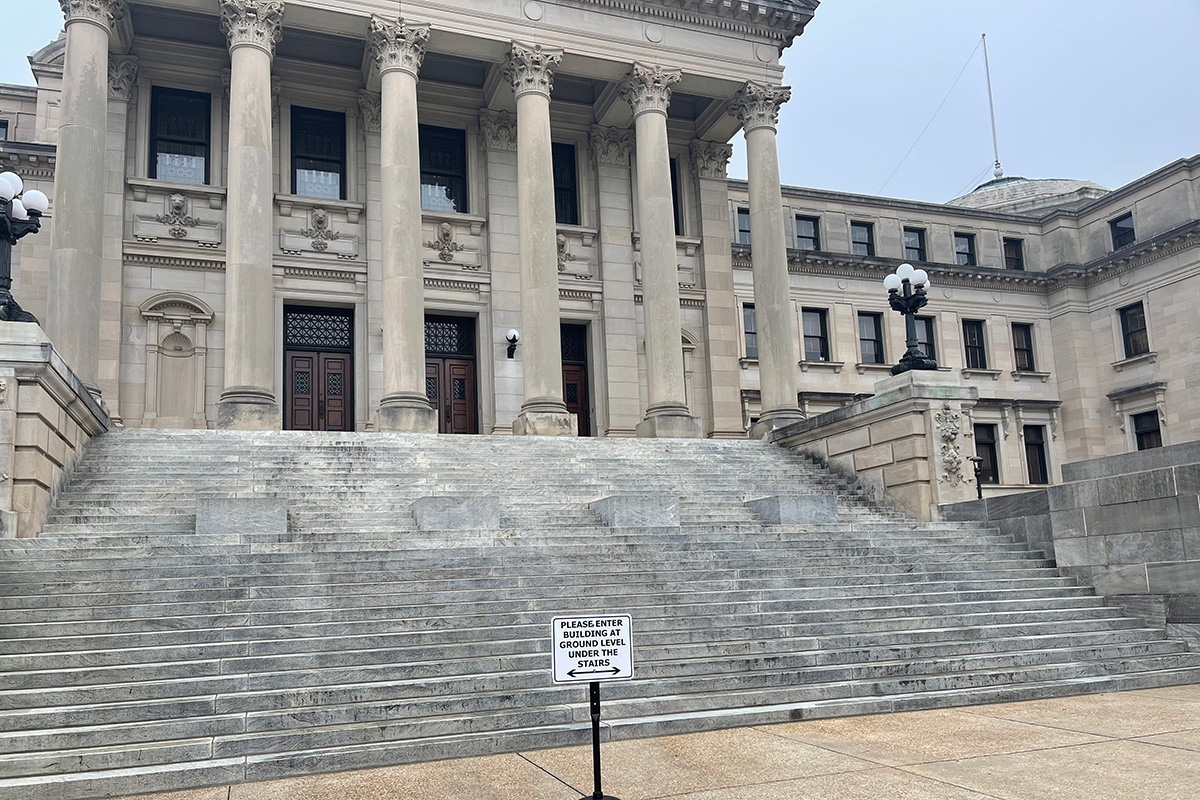
“While I was in there, I lost everything—I lost my housing; I lost my car; I lost contact with my family; I lost everything,” Freeman said. “When I did get released in 2011, I was actually homeless. I was living at the Salvation Army. There were some nights when I wasn’t able to get a bed. So I had to sleep on the outside of the Salvation Army because I had nowhere else to go.”
She eventually found work with Big Lots in Bradenton, Fla., but soon discovered that she had end-stage renal failure and had to return to Sardis, Miss., where she was born, to live with her mother and stepfather.

Freeman founded the Mississippi Center for Re-entry in 2017 to provide the assistance she could have used but did not get after her own time in jail to others facing similar circumstances. “Once I started feeling better in January of 2017, I began working on establishing my nonprofit,” she said, incorporating it in April 2017.
On its website, the organization relays that it services Desoto, Tunica, Marshall and Tate counties and provides people who desire a second chance the opportunity for successful reintegration.
With an objective of “disrupting the cycles of incarceration,” the Mississippi Center for Re-entry teamed up with other re-entry organizations to advocate for bills that will help people coming out of prison. Freeman joined RECH Foundation Founder and CEO Pauline Rogers and New Way Mississippi President and CEO Larry Perry at a press conference inside the Mississippi Capitol complex on Feb. 24.

“As a formerly incarcerated woman, I started the Mississippi Center for Re-entry in 2017 because of the struggles that I had once I was released from prison—from trying to find housing, secure employment, and make sure I had food every day to eat, reintegrating back into society was a very big struggle for me,” Freeman said.
Her organization has helped reintegrate 245 individuals by providing housing, employment, access to mental health and other services that are needed for successful reintegration, Freeman said.
“Without combined community organizations and good re-entry policies, returning people will find themselves in a cycle of recidivism,” Freeman explained. “Recidivism not only harms returning people, but it also harms their families and society in general, as taxpayers foot the bill for mass incarceration.”
Pauline Rogers: From Prisoner to Re-Entry Czar
Pauline Rogers, 63, witnessed her father die from gunshot wounds after her mother shot him with a firearm when she was 9 years old. The court later ruled the action as self-defense.
As the first of 11 children, Aliyah Veal of the Mississippi Free Press reported in January 2022 that she became a shoplifter to help her siblings.
“I stole from department stores, dollar stores, grocery stores; if it was within walking distance of me, it was a target,” Rogers would later say of that period of her life, as described on her organization’s website.
When Rogers was 11, a police officer caught her shoplifting, pulled her aside, told her what she was doing was wrong, and paid for what she stole. But she continued until her late 20s and finally received a prison sentence.
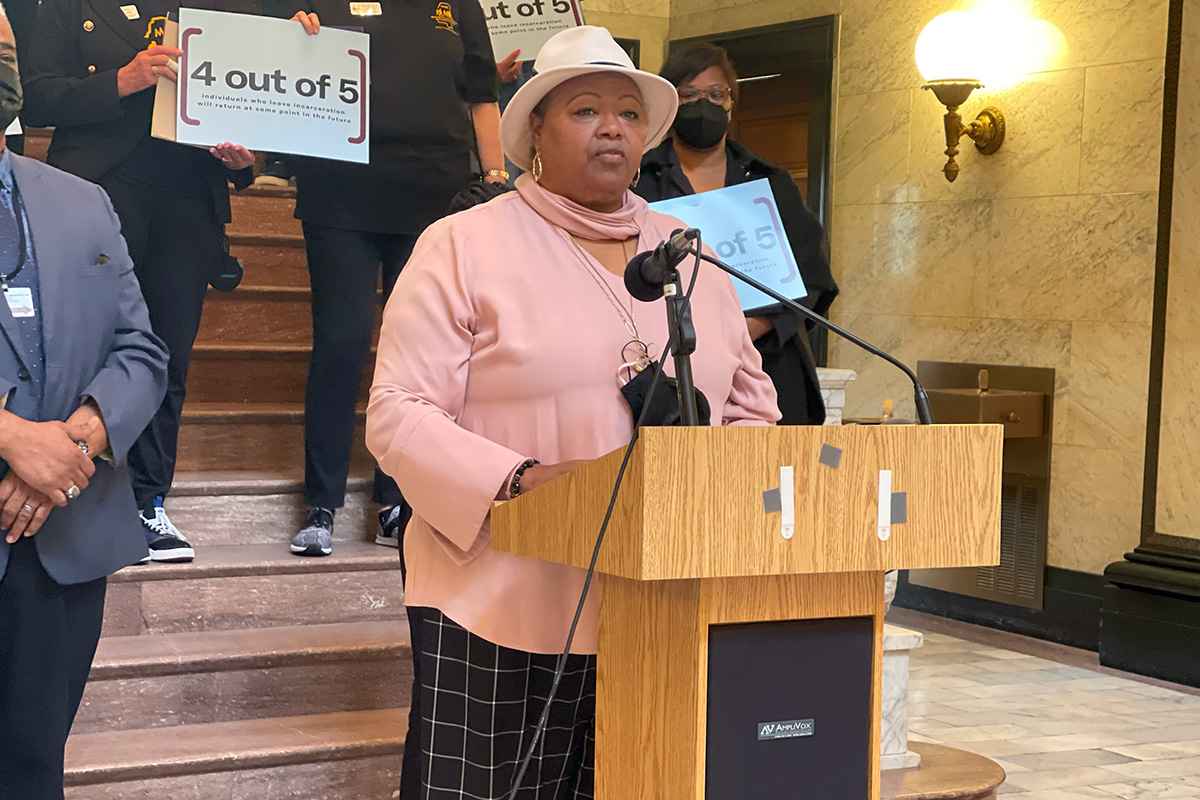
She decided on a different path while in prison, and after completing three years of a six-year sentence, she followed through on her promise after her release in 1987. Rogers founded RECH Foundation 35 years ago to provide post-incarceration help to others facing similar situations.
“While I was in prison, I saw the problem of incarceration,” Rogers told the Mississippi Free Press after the Feb. 24 press conference. “And that’s where it was born, out of my own experience and passion and what I saw other people go through, as I slept beside women who said they couldn’t get out of prison because they didn’t have an address.”
Rogers described RECH Foundation, which is based on a 27-acre property in South Jackson, as the “only re-entry campus in the state, African American owned,” she said on Feb. 24. The organization has housed 1,800 formerly incarcerated people and provided hundreds with job-readiness training and placement assistance.
At the press conference, Rogers mentioned three bills in the process and urged their passage.
Sen. Juan Barnett Authors Two Re-entry Bills
Mississippi State Senate Corrections Committee Chairman Sen. Juan Barnett, D-Heidelberg, sponsored Senate Bill 2273 to reform the supervised-release program. If passed into law, a probation or parole officer can get timesheets, evidence of employment, and mandatory drug tests from an offenders’ employers instead of requiring in-person or electronic meetings. The employers can withhold monthly probation supervision fees.
Rogers said of the bill: “You know, you want all of us to show up when we are supposed to show up and be at work? This policy would make it easier for individuals to report without the risk of losing their job or being in violation of non-reporting by just trying to keep their job.”
The proposed law would also postpone the date to end a statute that allows the Mississippi Department of Corrections to collect a $55 monthly fee from those on probation or parole for a maximum of 10 years. Though scheduled for repeal on June 30, 2022, if passed into law, it will be extended four more years until 2026.
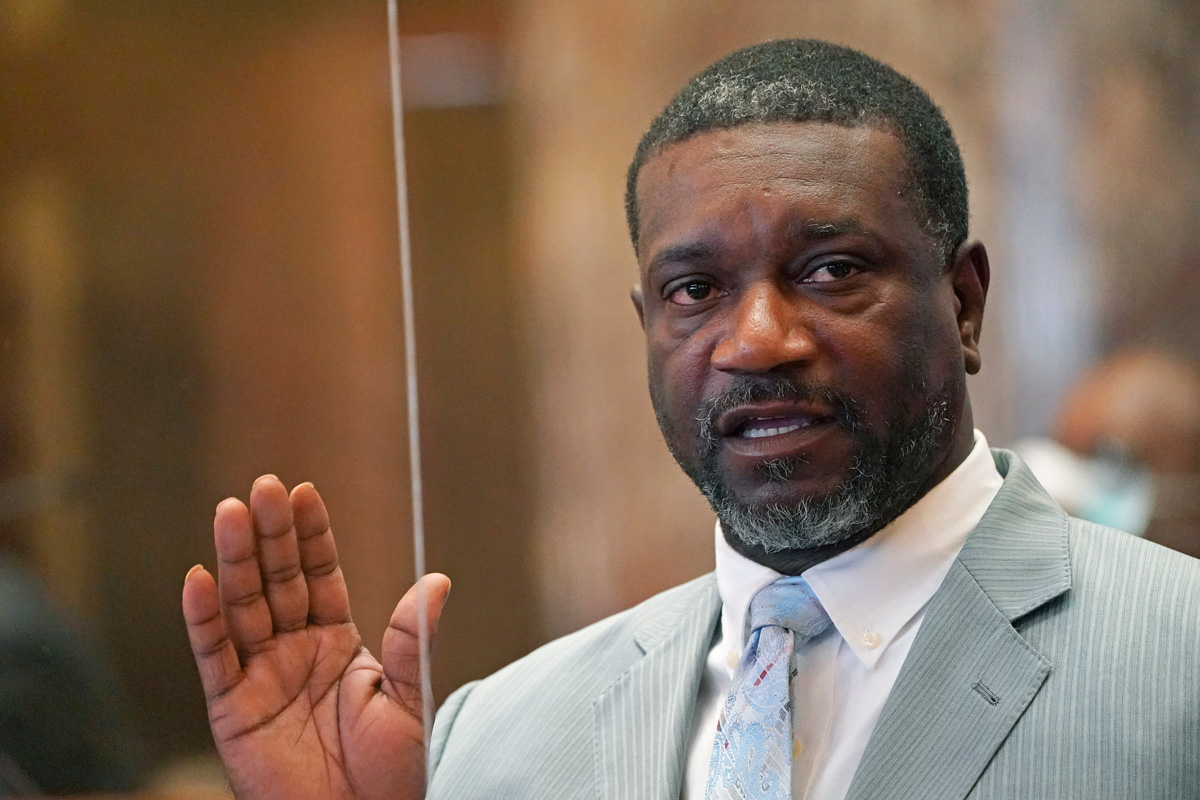
Former Columbus City Councilman Kamal Karriem told the Mississippi Free Press in November 2021 that such demands have driven people he knows into lives of crime.
“Yeah, that’s a very terrible process because then it’s sort of like they used to have debtors’ prisons a long time ago in this country; if you couldn’t pay your debts, they would throw you in prison,” Karriem said.
He had to pay the amount monthly for eight years of parole supervision after a two-year stint in prison following his guilty plea as a councilman in 2005 to embezzlement for lending someone a city-owned cell phone.
“And the courts abolished that because they said it was unconstitutional,” Karriem added. “It drives a great segment of impoverished people, particularly people in the lower disadvantaged neighborhoods, into the underground economy, and what I mean by that is selling dope, prostitution and doing illicit schemes.”
Another bill Rogers highlighted on Feb. 24 was Sen. Barnett’s Senate Bill 2275, which provides two more years for the work-release pilot program that the Legislature passed for one year in 2021.
It authorizes Rankin and Jackson county sheriffs to establish the program for people who have less than one year remaining of their jail term to work in the public-service sector for counties, municipalities, the state, and also for nonprofit charitable organizations or churches. It would include the board of trustees for state institutions of higher learning, county school districts, municipal school districts and junior college districts.
“I think individuals should have the opportunity to work even if they’re incarcerated,” Sen. Barnett told the Mississippi Free Press in a March 2, 2022, phone interview. “They should still have the opportunity to participate in something meaningful like work.”
The bill requires that the offender pay for child support and any court-ordered fines, restitution or costs from the wages—using up to 25% of their wages after mandatory deductions. Thereafter, “(t)he inmate shall have access to his account to purchase incidental expenses,” the bill reads.
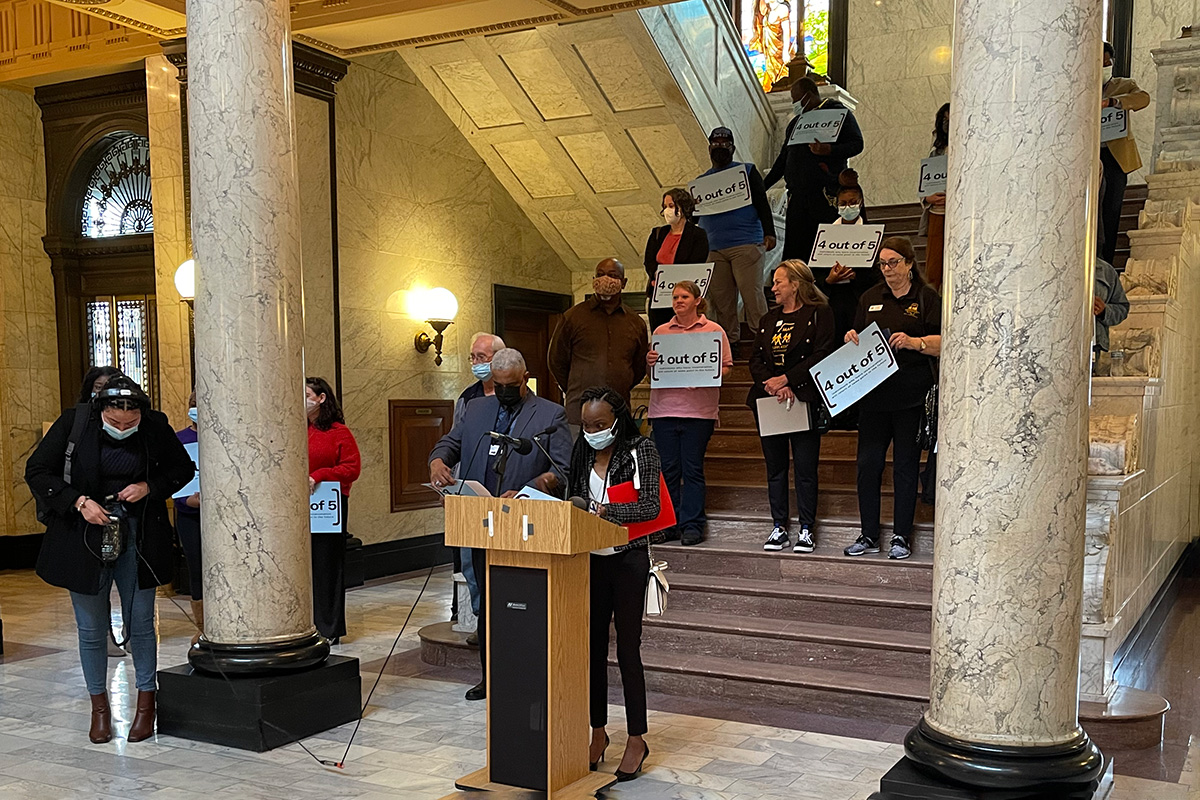
In a statement, the American Civil Liberties Union is demanding more transparency in the work release program and the publication of the rules and regulations no later than April 30, 2022.
This proposed law would require regular reporting of program data: those who entered the program, those who left, those arrested for a new crime while in the program, those within three years of completing the program, and how much money participants earned.
The ACLU is asking for more data, including detailed accounting for the 10% administrative fee, the total cost of the program, and the number of individuals who retained employment at the end of program participation.
“The program should not be extended to any other counties until this program has data to show success and areas that need improvement,” the statement added.
Rogers concurred: “This additional time would help determine what works and what doesn’t work before extending work-release programs to additional counties and potentially standardizing a harmful program.”

“In addition, we worry that people in these programs might be taken advantage of if there is no transparency about the fees taken from their paychecks,” Rogers added. “The end goal is to have a uniform work release. We do not want convict leasing or more restitution centers; we don’t want that. And (the bill should include) wage protectors for programs and participants.”
Wage Protector is insurance designed to help people fulfill their financial responsibilities when they lose their jobs due to disability, forced unemployment or re-employment at a lesser wage.
House Bill 592
Pauline Rogers is advocating for a third bill, House Bill 592, which she calls “a common-sense approach to eliminating barriers to re-entry.” If passed, the law would suspend child support for incarcerated persons under certain conditions.
Mississippi State Reps. Angela Cockerham, I-Magnolia; Otis Anthony, D-Indianola; De’Keither A. Stamps, D-Jackson; and Kabir Karriem, D-Columbus, sponsored the bill. Cockerham is the chairwoman of the House Judiciary A Committee and the chairwoman of the House Judiciary Enbac Committee.
“Incarceration should not be regarded as voluntary (unemployment),” Rogers said.
New York University sociology professor Lynne Haney interviewed 150 former inmates in California, Florida and New York, with an average of $35,000 in child-support debt. The National Science Foundation and National Institute of Justice funded the project, which ran from 2014 to 2017.
“It’s an enormous problem. It’s just mind- boggling,” the professor said, as the National Conference of State Legislatures reported in 2017. “We don’t even have a sense of the scale of the problem because we don’t have reliable data.”
The National Conference of State Legislatures warned then about the cycle that returning citizens often get locked inside: “Once out of prison, often with limited job prospects, some resorted to the ‘underground economy,’ selling drugs, for example, and avoiding their families. Frequently, they wound up back in prison.”
‘They Are Not Going to Take a Tax-Paying Job’
Founded in 1998, New Way Mississippi provided services to more than 472 formerly incarcerated people in 2020 alone through its transition and re-entry program, CEO Larry Perry said. Perry also pushed the passage of HB 592.

The law covers those in prison for more than 180 days and provides that child-support payments resume 60 days after release. Incarceration for the crimes of domestic violence, child abuse and criminal nonpayment of child support would not qualify.
“The bill makes sense because many of the men that are coming through my program come out with ($30,000) to $40,000 in back child support,” Perry said. “Quite frankly, they are not going to pay that. As a matter of fact, they are not going to take a tax-paying job because the check is going to be garnished.”
“I have a number of men come through my employment-training program that’s in my re-entry housing,” Perry told the Mississippi Free Press on Feb. 24. “One of the main concerns that they have is that, ‘Hey, I’ve been incarcerated four, five, six years. I haven’t paid child support, and now I’m owing thousands of dollars in back child support, so when I get a job, that’s actually going to be garnishing my check.'”
“So, in essence, many of them are not going to get a tax-paying job because they are not going to be able to get any money to take care of themselves,” he explained.
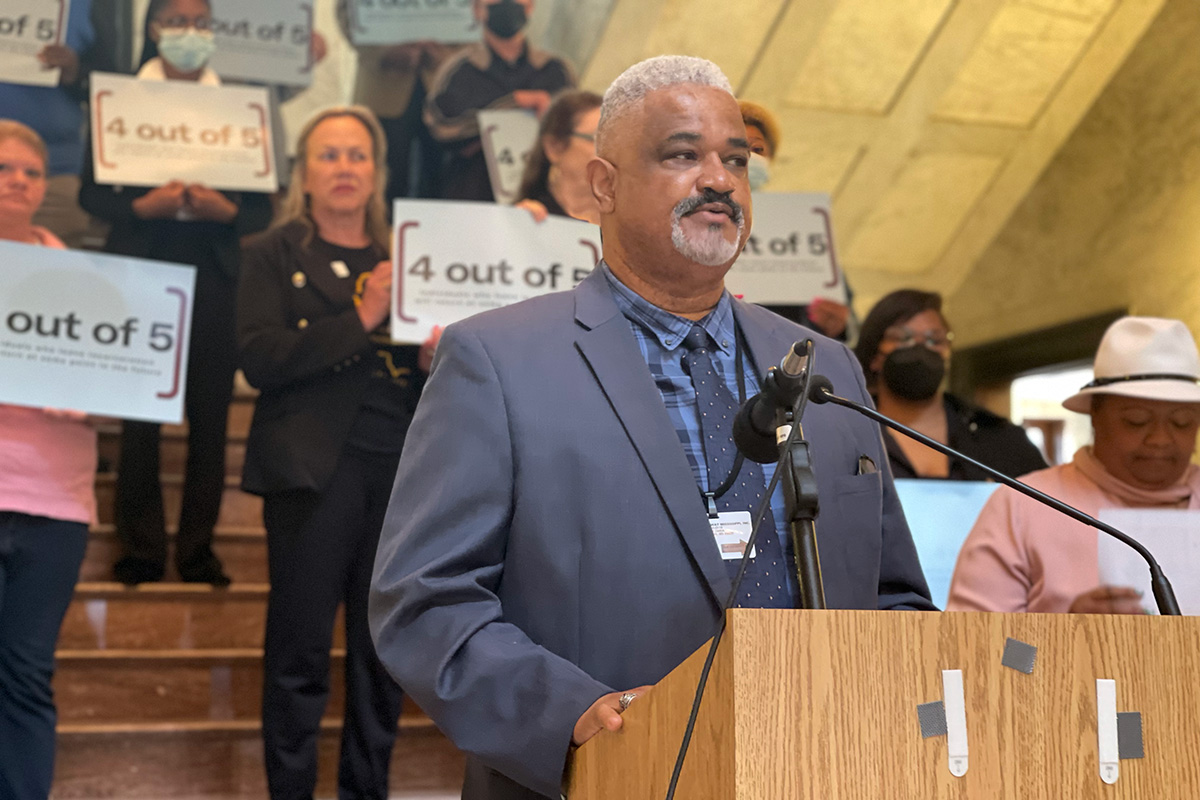
The National Conference of State Legislatures wrote in February 2022 that about 440,000 parents in federal and state prisons and jails have a child-support obligation.
“Incarcerated parents with child-support obligations often are unaware of child-support debt accruing while they are locked up, leaving them with significant debt upon release,” the organization stated.
New York-based The Marshall Project interviewed dozens of noncustodial parents in 10 states and found that they left prison owing between $10,000 and $110,000 each in child support.
“Mostly fathers who are disproportionately Black and poor, these parents faced prosecution for not repaying the debt, even after their children were grown,” the project added in a 2015 report.
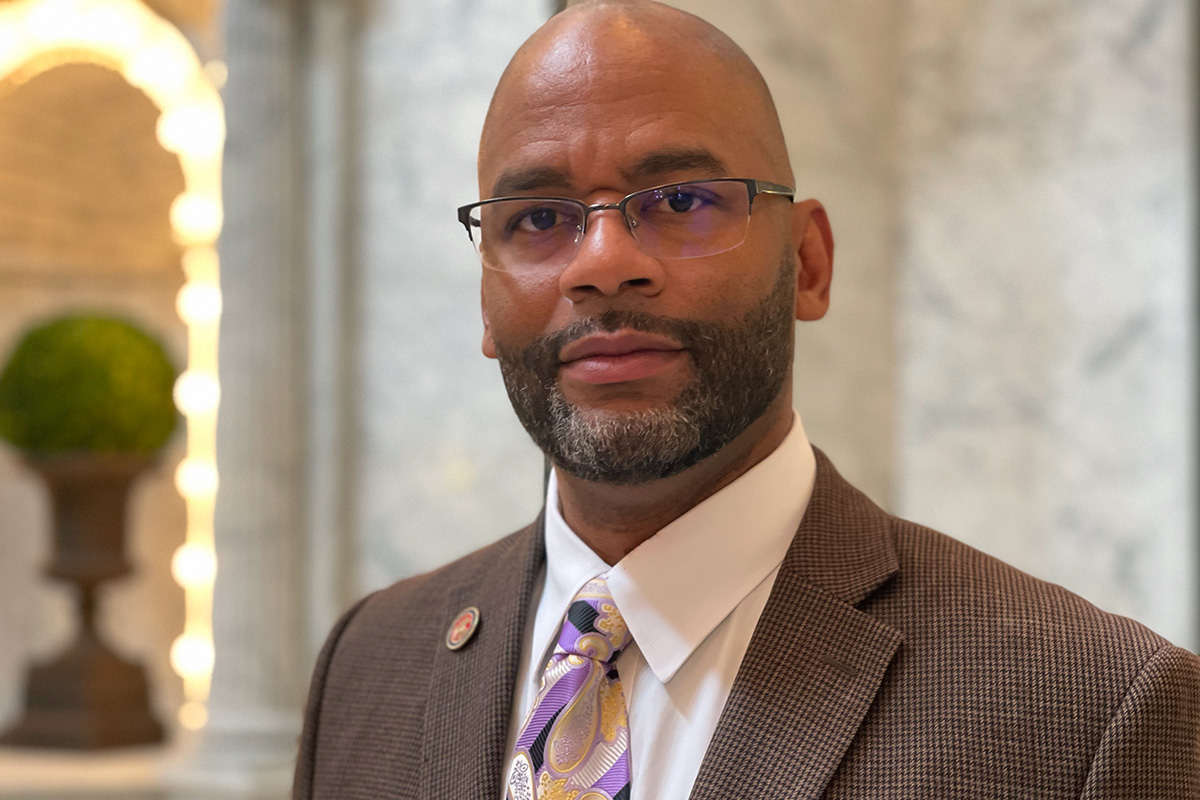
Rep. De’Keither Stamps, a Jackson Democrat, reiterated to the Mississippi Free Press by phone on March 1 that having such obligations accruing over the years of imprisonment creates a high barrier for reintegration into society. He noted that since child support “is supposed to be based on income, if you have no income, how can you charge child support?”
“If you were current up until you went to jail and then you’re making no money, but they’re still charging you $1,000, $2,000 a month for child support and not recalculating to base it off of you’re making nothing, how can you pay?” he postulated. “You spent five years in prison, $2,000 a month times five years; that’s a lot of money.”
“You have to come up with a hundred thousand dollars.”
The strain of owing so much child support drives people released from prison underground and potentially back into crime, Stamps said.
Being behind in child-support payments means the formerly incarcerated cannot get a driver’s license to help them keep a job, he added.
“So now that person gets out of jail, they’re not going to work because if they get a job, they’re going to immediately get garnished and then pushed back into an underclass and cash economy, and even crime, when they could be law-abiding taxpayers,” he said. “Since they can’t get a driver’s license because of a child-support bill that’s due.”
The inability to get a commercial driver’s license blocks an avenue that many returning citizens follow to get back on their feet, Stamps explained. “When ex-offenders get out of jail, the first thing they do is go truck driving and become tax-paying, law-abiding citizens,” he said.
"entry" - Google News
March 05, 2022 at 01:51AM
https://ift.tt/juxr0qK
Disrupting the Cycle: Re-entry Leaders Push Post-Incarceration Reform at Capitol - Mississippi Free Press
"entry" - Google News
https://ift.tt/RQgue7h
https://ift.tt/6f4EUyz
Bagikan Berita Ini














0 Response to "Disrupting the Cycle: Re-entry Leaders Push Post-Incarceration Reform at Capitol - Mississippi Free Press"
Post a Comment